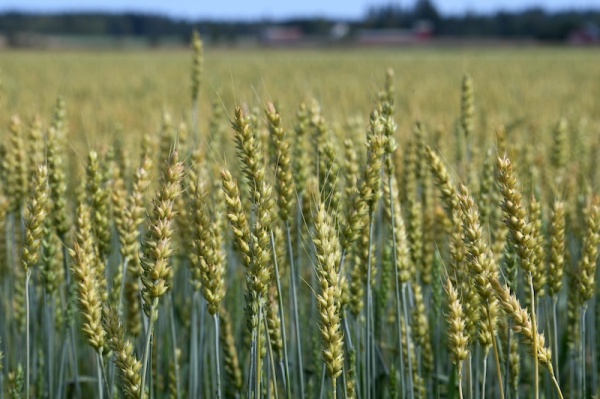The Guardian: Finland strengthens food security, urges Europe to follow

Winter wheat in Paijalankylä, Tuusula. Photo: Jussi Nukari / Lehtikuva
- Next Article Yle: Police drop investigation into Finns Party MP’s remarks on immigration
Finland’s emergency supply agency has confirmed the country is prepared for future crises with national grain stockpiles, resilient farming and household readiness kits, calling for similar action across Europe.
In an article by The Guardian, Miika Ilomäki, chief preparedness specialist at Finland’s National Emergency Supply Agency (Nesa), stated that Finland’s approach prioritises continuity of food supply in the face of pandemics, cyber threats or geopolitical disruptions.
“Preparedness must be proactive, inclusive and deeply integrated into national strategy,” he said.
The country maintains strategic reserves of staple grains including wheat, oats, barley and rye, stored across secure national sites. These stockpiles are rotated using the first-in-first-out method and are intended to cover food needs for nine months if supply chains break down.
Ilomäki said the reserves helped reassure the population during the Covid-19 pandemic and the early stages of the war in Ukraine. He also stressed that the public expects a functioning food system even during disruptions.
Finland’s food self-sufficiency rate stands at around 80 percent. The country has more than 40,000 farms. In 2024, 74 percent were focused on crops and 20 percent on livestock. The average farm size is 56 hectares.
Ilomäki highlighted the role of these farms in national security, calling them the backbone of the system. He also pointed to local innovations such as the development of a Nordic-optimised rapeseed cultivar, Aurea CL, which supports domestic oil and protein feed production.
Beyond agriculture, Finland’s food supply chain includes detailed emergency procedures for logistics. These plans cover rerouting transport and prioritising key goods. Emergency fuel reserves ensure that food transport and farm machinery remain operational under stress.
Nesa works closely with food producers, wholesalers and retailers to develop joint contingency plans and test them through exercises. According to Ilomäki, this public-private cooperation is not just written policy but standard practice.
Households are also expected to participate. Under the 72-hour model, each household is encouraged to keep three days’ worth of food and water, equal to five litres per person. A checklist promoted through national campaigns includes dry food, first aid supplies, iodine tablets, torches, battery-powered radios, and other essentials.
This model, supported by outreach and education, has proved useful during natural disasters and cyber incidents.
Ilomäki said Finland’s approach cannot be directly copied everywhere, but the principles are transferable. He pointed to Europe’s interconnected food system as vulnerable to external shocks, with the pandemic, the Ukraine conflict and climate impacts already affecting supplies.
He said that countries should adopt strategic reserves, ensure a strong domestic production base, foster cooperation between government and industry, and promote household readiness.
The Guardian originally published the article by Miika Ilomäki on 16 September 2025.
HT
- Next Article Yle: Police drop investigation into Finns Party MP’s remarks on immigration
Source: www.helsinkitimes.fi
